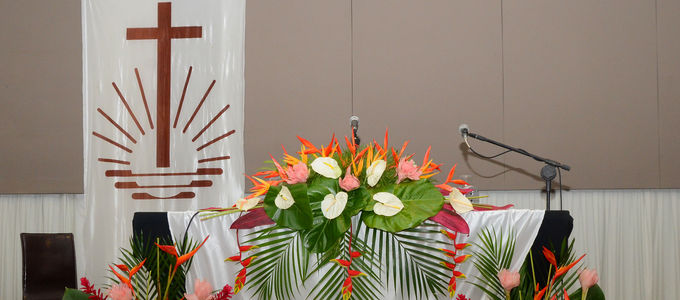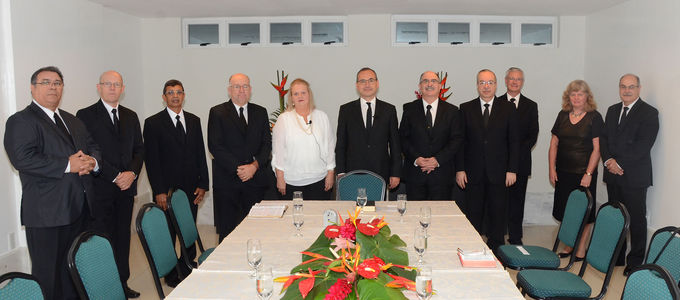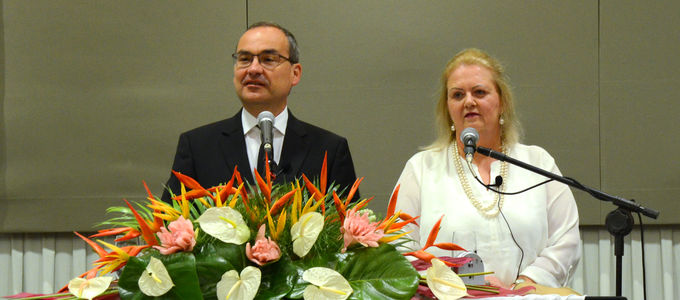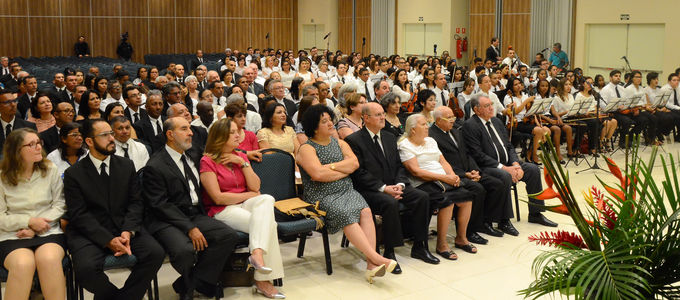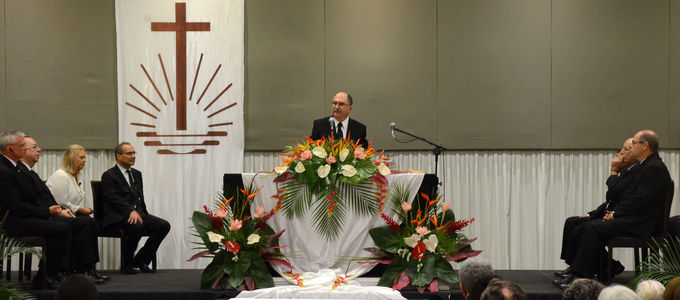Seventy sent out in pairs: trustworthy and unafraid
The tenth chapter of the gospel of Luke begins almost like a travel report: seventy disciples are to make their way through the villages, always in twos. Why? What are they preaching? And how? They had received a clear mandate for this—and it still applies today.
“After these things the Lord appointed seventy others also, and sent them two by two before His face into every city and place where He Himself was about to go.” This Bible text from Luke 10: 1 served as the foundation for Chief Apostle Jean-Luc Schneider’s sermon on 5 August 2017 in a divine service for ministers in Natal, Brazil.
The Church leader elaborated on this verse on the basis of its biblical context, according to which Jesus spoke as follows to His disciples: “The harvest truly is great, but the labourers are few; therefore pray the Lord of the harvest to send out labourers into His harvest. Go your way; behold, I send you out as lambs among wolves. Carry neither money bag, knapsack, nor sandals; and greet no one along the road. But whatever house you enter, first say, ‘Peace to this house.’ And if a son of peace is there, your peace will rest on it; if not, it will return to you. And remain in the same house, eating and drinking such things as they give, for the labourer is worthy of his wages. Do not go from house to house” (Luke 10: 2-7).
A clear definition of service
The Chief Apostle explained that Jesus had clearly structured the service of the disciples in this manner: they were to proclaim the gospel and prepare the way for Him as the Son of God, so that the people would be expecting Him when He came. “And this is precisely our mandate as well,” said the Church leader, as he went on to apply the Bible text to the here and now, sentence by sentence:
- Jesus sent His disciples out to the places He intended to go: “For us, this means going to all people. Do not be afraid, do not have any prejudices, and do not have any fear of contact. Just go out—to all! Jesus desires to bring the gospel to everyone through us! We are just like mail carriers who are to deliver a letter.”
- The Lord sent them out two by two: “According to Judaic tradition, testimony could only be accepted if it came from two witnesses. In those days there had to be two of them if they were to appear trustworthy and credible. Today it is our conduct that testifies we are telling the truth. Our own lives must be consistent with the words we preach.”
- Jesus sent out His disciples like lambs among the wolves: “We too must be prepared to deal with resistance. Our testimony of the message of Christ is often attacked. But the important thing is that we have been sent by the Lord. Let us not think about the wolves, but rather remember who has sent us! And He is stronger than all the rest.”
- The disciples were not to take along any money or even sandals: “We all have our ideas of what we actually need in order to really serve the Lord. Instead, let us believe that God will give us what we need. No one can come to the Lord with the excuse, “I was not able to do what You required of me because I did not have the means to do so.” When God requires something of us, He also sees to it that we will have the means to do it. It is not always easy, but it is possible.”
- The disciples were to pass along the message of peace: “Let us tell people, ‘Jesus loves you, even if you have done terrible things. Jesus loves you, and He wants to lead you into eternal fellowship with Him. Do not be worried. Do not reproach yourself. You still have the opportunity to enter the kingdom of the Lord.’ That is the peace of Jesus Christ.”
- His disciples were to eat and drink whatever they were given: “We need to adapt ourselves. We cannot require others to be as we are. We must adapt ourselves to the otherness of our neighbour and make a clear distinction between the gospel and culture and tradition. These are completely different things. Even if the other person is very different from us—and perhaps enjoys different music or has a completely different way of thinking—let us simply allow him to be as he is! The main thing is that he follows Jesus Christ!”
“If we do this, we will make the same experiences as the disciples did,” said Chief Apostle Schneider in conclusion: “They experienced that the power of God was with them.”
Article info
Author:
Date:
Keywords:
Peter Johanning
05.10.2017
Brazil,
Chief Apostle,
Divine service



